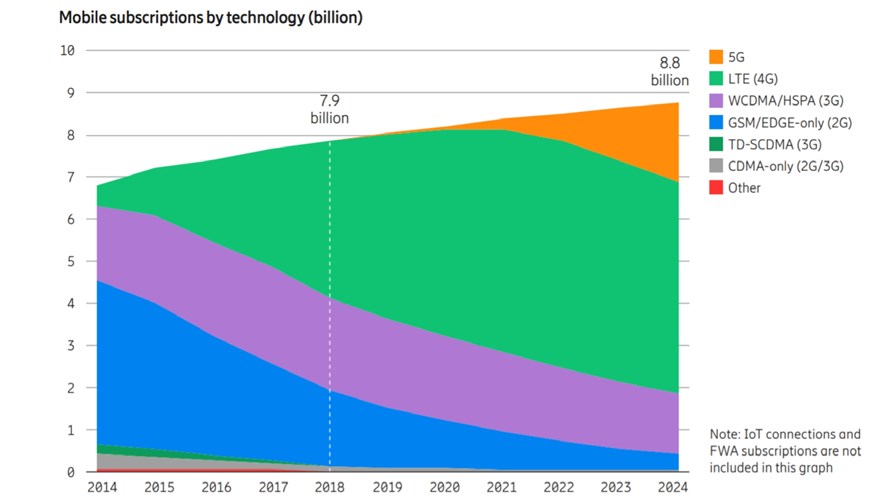
via Flickr © Peter Krantz (CC BY 2.0)
- It didn’t just win bragging rights for thowing the on switch first
- It’s also followed through with a million 5G subscriptions in 69 days
- But the generational speed-up has left operators supporting many cellular standards
South Korea is still winning the ‘race to 5G’, not just by breasting the imaginary tape with a credible national network to switch on back in April, but by its networks’ keeping up the momentum with a marketing drive that has gathered more than one million subscribers over about two months.
All that ‘race to 5G’ stuff and all the hype about 5G’s capabilities appears to have done the trick. The South Korean government has announced that 5G’s early days are easily more impressive than 4G’s. Back in 2011, it says, it took 80 days for South Korean networks to garner their first million 4G subscribers (that is, users with access to 4G services on their phones) from launch.
This year it’s taken just 69 to get to one million 5G users. OK, so that’s 11 days difference, not exactly eye-watering but better than a poke in the eye with a blunt smartphone.
The South Korean experience backs up Ericsson’s claims for improved adoption speed and its mobility report for June 2019 will be greeted with a cheer by many in the industry looking for reassurance about 5G’s likely uptake as we enter an increasingly uncertain stretch for the IT and communications industry. There’s the Huawei ‘troubles’ which will, if deepened, be a drag on the whole 5G effort, especially in Europe. And then there’s the rising ‘anti-trust’ mood (in both senses of the term) mostly directed for better or for worse, against Google, Amazon and Facebook.
Now throw into the pot the usual chorus of doubters which attends every new mobile ‘G’ introduction - some of it coming straight from the industry itself - and add the customary dash of health scare babble and you have a potential problem.
An Ericsson mobility report, however, can generally be relied upon to act as an antidote to this bearish narrative and even strike a celebratory note, spraying out numbers and projections which show the new G doing better and spreading faster than the one that came before - just what the industry wants to hear.
And Ericsson has delivered again. It says it’s revised its projections upwards due to faster than expected 5G uptake and enthusiasm.
Of course 4G is only now starting to reach its peak. Total subscriptions are around 7.9 billion, with mobile broadband subscriptions standing at 76 per cent of that total and LTE comprising 47 per cent. There are around 5.7 billion total subscribers globally compared to 7.9 billion subscriptions, which puts global mobile subscription penetration at 104 per cent.
As 5G devices become available and more service providers launch networks, Ericsson reckons that over 10 million 5G subscriptions will be taken by the end of 2019. By 2024, however, there are projected to be 1.8 billion 5G devices out there, out of a global mobile phone total of 7.2 billion.

Source: Ericsson
The big global picture is one of the rise and fall of mobile standards and is represented by the above diagram. Ericsson points out that the actual peak for LTE subscription is projected for 2022. As a result we now appear to have a slow fade in terms of the previous ‘G’s with a plethora of cellular standards therefore having to be supported, although the proportions obviously vary greatly from country to country. Note that by 2024 2G technologies will still be a factor (although disappearing fast as their frequencies are refarmed), and 3G will still occupy a significant proportion of the total having shrunk only marginally over the next 5 years. LTE won’t have shrunk hardly at all.
In amongst all those shifting proportions, however, one stat stands out. Mobile broadband is now dominant. Ericsson estimates that of the 8.8 billion mobile subscriptions expected by the end of 2024, around 95 per cent of those will be for mobile broadband.
Download the June 2019 Ericsson Mobility Report here
Email Newsletters
Sign up to receive TelecomTV's top news and videos, plus exclusive subscriber-only content direct to your inbox.




